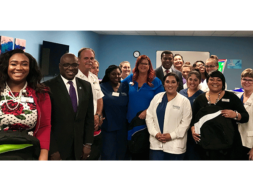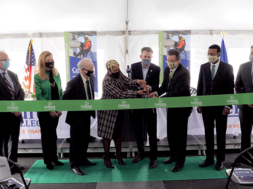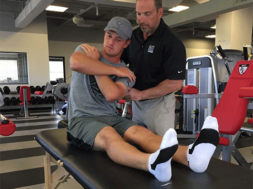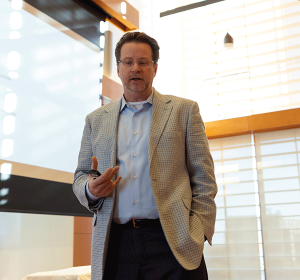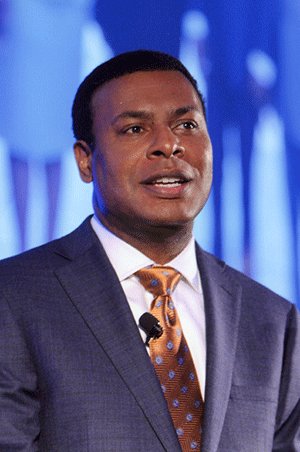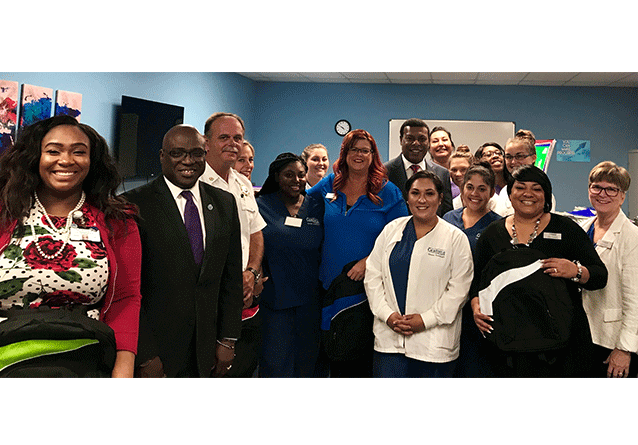
Centura College, Aviation Institute of Maintenance and Tidewater Tech Create Partnerships That Promote Community-Based Education
Written from an interview with Joel A. English, Executive Vice President and Kenneth Cooper Alexander, Chancellor, Centura College, Aviation Institute of Maintenance, Tidewater Tech
Centura College, the Aviation Institute of Maintenance (AIM) and Tidewater Tech are career colleges, teaching students skills that help them land jobs. But what makes these schools different from many other colleges is the speed they can start new, needed programs and their emphasis on forming partnerships that ultimately benefit students and decrease student debt.
Kenneth Alexander, the new chancellor of the three above named school systems, said what attracted him to the position was the ability and the speed of Centura, AIM and Tidewater to start programs that directly respond to employers’ needs.
Examples include their new solar panel technician program in development, and their wind turbine maintenance technician program, which is already “off and running,” he said.
Alexander said the transition into his new role has been an easy one due to his varied background. He grew up on the south side of Norfolk, around shipbuilders, a steel foundry, a coal-fired plant and a busy railroad. After graduating from high school, Alexander had a choice: get an associate’s degree and go to work, or pursue a four-year degree.
“I decided to pursue the community college route and earn an applied arts and science degree,” he said. “That was the best decision I made, because everything that I have been able to accomplish in life is tied directly to that workforce certificate and degree and certification that I received right out of high school.”
Alexander said his entire career, in fact his entire life, is anchored in workforce development and career and technical education.
After earning his associate’s degree from John Tyler Community College, he went on to earn his bachelor’s degree in political science from Old Dominion University, his master’s degree in diplomacy from Norwich University, and a master’s degree and a doctorate in leadership and change from Antioch University. Alexander has also served as an instructor at Tidewater Community College and as a guest lecturer at universities throughout the state.
Alexander began his career as president of the Beacon Light Civic League in Norfolk’s historic Berkley Community. After leading a series of local economic development initiatives, he was elected to Virginia’s House of Delegates where he served for 10 years on the education committee and its subcommittee on higher education. Alexander was later elected to the Senate of Virginia where he served on the finance committee and the Joint Commission on the Future Competitiveness of Virginia Higher Education.
He has also championed economic development and workforce solutions by opening the Norfolk State University Innovation Center in downtown Norfolk, as well as spearheaded the creation of the Old Dominion University Institute for Innovation and Entrepreneurship, Technology Applications Center. It serves as a thought leader, convener and catalyst for innovation and entrepreneurship initiatives throughout the Commonwealth of Virginia, and helps to build lasting relationships between industry and academia.
Dr. Kenneth Cooper Alexander at a glance
- Education – Earned an associate’s degree from John Tyler Community College, a bachelor’s degree in political science from Old Dominion University; a master’s degree in diplomacy from Norwich University, and a master’s and doctorate in leadership and change from Antioch University
- Political tenure – Served 10 years on the House of Delegates education committee and the higher education subcommittee, and then moved to the Senate, where he served on the finance committee and the Joint Commission on the Future Competitiveness of Virginia Higher Education. He also championed education policy and advocated for progressive movements in Virginia’s academic success, and served on the Southern Legislative Conference Education Committee.
- Economic development and workforce solutions – In 2019, opened the Norfolk State University Innovation Center in downtown Norfolk to support an innovative and entrepreneurial ecosystem through collaboration with the city, the region and the Small Business Association. Also spearheaded the creation of the Old Dominion University Institute for Innovation and Entrepreneurship, Technology Applications Center in Norfolk to serve as a catalyst for innovation and entrepreneurship initiatives through the Commonwealth.
- Books, lectures and presentations – His most recent book, in 2021, is “Persistence: Evelyn Butts and the African American Quest for Full Citizenship and Self-Determination.” Other books, lectures and publications are on leadership (citizen, political, civil rights and education), and public policy.
Alexander said he was also attracted to the job because of the leadership of college Executive Vice President Joel English.
“It’s the ability in which Joel can bring those programs to fruition, but to also attract students,” Alexander said. English helps to ensure that students receive the competency, support, services and placement into the industry as an entry level technician, while the school continues to encourage their students to be involved in their communities and to pursue further certifications, he added.
In his new position, Alexander oversees policy development and provides direction for the institutional mission, core values and vision while supervising external affairs for their 19 campuses nationwide. He said it’s the speed of which Centura, AIM and Tidewater can start new programs that differentiates their institutions from other colleges.
English said an executive vice president of a large-scale national employer recently told him: “A community college offers a wonderful thing. It’s the government doing maybe some of their best work, but what they can’t do is put workforce development programs together quickly. I know that when the community college finally announces they are having their first class of students entering into one of their new programs, that area, that industry, is probably now out of date and has expired as something we’re interested in getting into.”
The speed that the career school sector can do things is one of the top benefits of the sector, English said. “I credit our accreditors for being agile, but I also credit the entrepreneurial spirit of schools like ours, that say, ‘Hey, we’re here to help industry right now, not 10 years from now when we get a grant and a committee and approvals…’”
Alexander said he is a supporter of community colleges since he is also a product of that system.
“However, we know that the number of students who are actually graduating with credentials and landing in entry-level jobs is low compared to the work that we’re doing,” he said.
But they are trying to change that as they partner with community colleges and other universities.
English said they should be ready to start and open an Aviation Institute of Maintenance campus in Chicago this September. “A city like Chicago, which has two of the largest airlines based there, United Airlines and Southwest Airlines, also has the largest maintenance repair overall station in North America,” he said.
Yet the city, which also has two major international airports, does not have a single aviation maintenance school. The two closest are in Rockford, Illinois, near the border of Wisconsin, and a liberal arts school about an hour and a half away called Lewis University he said.
“So basically there is no school serving the workforce needs of this enormous aviation town,” English said. “We’re proud to come in; our newest campus will be the largest campus in America serving aviation maintenance at 137,000 square feet.”
English said the City Colleges of Chicago, a large network of city community colleges, reached out to them and welcomed them to town as they have begun the development of their Chicago campus. The group told them, “We always wanted to get into aviation maintenance as well, but we couldn’t afford to do so…”
However, the City Colleges of Chicago does have a transportation school, Olive-Harvey College, which asked AIM if they would work with them to expand aviation maintenance into the community college system.
“Our answer was, ‘absolutely yes.’ We are used to doing the investment,” English said.
AIM will invest $5 million in the construction of its Chicago campus and an additional $2 million on equipment, aircraft and training aids. English said they offered Olive-Harvey the opportunity to benefit from the resources and the investments that AIM is making by allowing community college students to come to the AIM campus to take the coursework in aviation, airframe and powerplant, or the more technical courses.
That would allow Olive-Harvey Community College students to get a full associate’s degree in aviation maintenance by taking the technical classes at AIM and the general classes and general education classes at Olive-Harvey in a partnership, English said. AIM will accept the lower tuition rate of the community college for Olive-Harvey students, he said.
“We are supporting the government’s work by subsidizing students’ education at the community college tuition rate so that we can launch this partnership,” English said. “We put our money and our effort where our mouth is…”
The collaboration will continue and expand in Illinois. Southern Illinois University, which offers a bachelor’s degree in aviation maintenance, has agreed to take all credits earned through the AIM/community college partnership toward its bachelor’s degree.
“So any student who goes through this combined program with AIM and Olive-Harvey can transfer to SIU and get a bachelor’s degree if they want to do that,” English said, “or they can go directly to work, or do them both combined. This is true collaboration, true oneness with community-based education. That’s what we’re about.”
As another example, Alexander said the Commonwealth of Virginia will have 188-plus wind turbines built about 27 miles from its school that should generate over 2,600 kilowatts of power, enough to power more than 660 homes and businesses. Their wind technician turbine program graduates will be able to install, repair, maintain and service those turbines.
The new program came about because English realized there was a gap and responded, Alexander said.
“Now if community colleges, through their general education program, have students who want to come over to our learning lab, learning tower, learning turbine and receive a hands-on experience, we would forge a partnership just as we forged in Chicago,” he said. “So students could take their general education classes at the community college, come over to Centura for their wind turbine technician certification, and Dr. English will charge them no more than they are paying at the community college. That’s the type of collaboration, that’s the type of leadership that we have in Dr. Joel English.”
English said they are also working with Old Dominion University on a similar collaboration.
“ODU has a four-year engineering program, and Lord knows we need engineers working the case on wind turbines. But the hitch is when you get a four-year engineering degree in alternative energies or renewable energies, you don’t necessarily graduate with an industry-recognized certification of any type,” he said. “You merely have a four-year degree.”
So within the next year, we will be working with ODU to create pathways for Old Dominion engineering students to come to Centura College during their programs to earn their Global Wind Organization certifications. Those certifications will allow those students to actually step foot on a wind turbine, while they do the work that an engineer would do, English said.
English acknowledged that their schools couldn’t compete with community college pricing, which is subsidized by taxpayers. But they do work with employers and fund sources to reduce student debt.
“In our area, the community college system has a catch phrase, ‘From here, go anywhere.’” English said. “And what they mean by that is, come here, get a very affordable first two years of college, and then go to work or go to a university…”
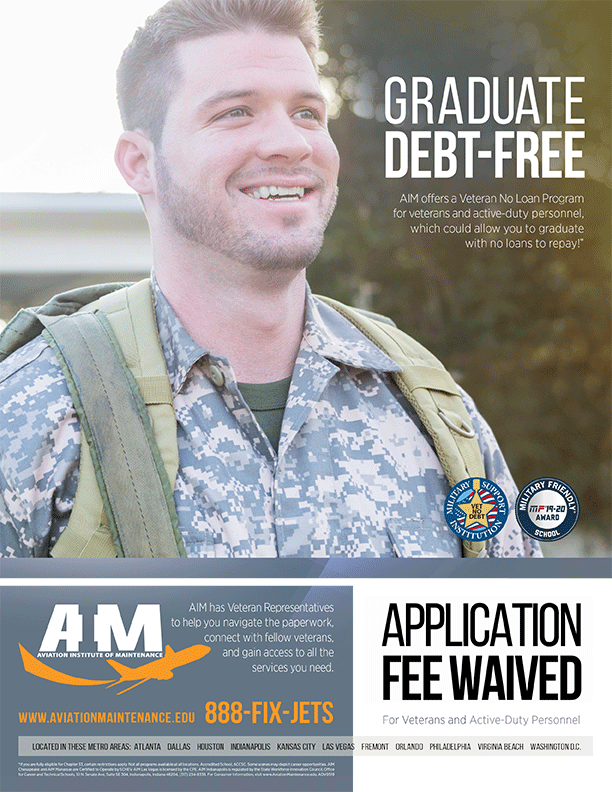 While Centura, AIM and Tidewater do charge more than community colleges, they offer programs like “Vet No Debt Program” to keep their schools affordable. For instance, they will write off any shortfall for any veteran who comes to one of their schools and uses his or her GI bills to cover their education, English said.
While Centura, AIM and Tidewater do charge more than community colleges, they offer programs like “Vet No Debt Program” to keep their schools affordable. For instance, they will write off any shortfall for any veteran who comes to one of their schools and uses his or her GI bills to cover their education, English said.
In addition, Dominion Energy and several of the airlines are working on programs where they will provide financial support to select students who go through specific programs and then go to work for their company once they graduate.
Alexander, who is also the mayor of Norfolk, said he has pockets of constituents, often in Black and Brown communities, where the unemployment rate is in the double-digits and there is a high concentration of poverty. “That is troubling to me, to Joel and to our organization…”
Alexander said English sometimes offers scholarships or grants, and enrolls students and supports them, and gets them where they need to be because it is the right thing to do.
English said they try to be innovative in keeping student debt to a minimum. For example, AAR, an airplane maintenance, repair and overall business, has a student loan repayment system. So any student who signs up for the EAGLE Pathways program between AIM and AAIR, goes to work for AAR after finishing an AIM program, and elevates within the AAR mechanic ranks will be provided with up to $15,000 to put toward student loan debt.
“The second greatest thing that I have to offer to America is career education,” he said. “But the first greatest thing I have is career education with zero or minimal student debt, and so we work on that commitment as much as we can,” English said.
This is the first article in a three-part series. The next article will focus on renewable energy programs.
JOEL ENGLISH is the Executive Vice President of Centura College, Aviation Institute of Maintenance, and Tidewater Tech, where he supervises all operations over the 19 campuses across the country. Dr. English served as a Commissioner for the Accrediting Commission of Career Schools and Colleges (ACCSC) for six years, serving as the Chair for two years, as well as chairing the Distance Education Committee. In previous positions, Dr. English served as the CEO for the Ohio Centers for Broadcasting, Illinois Centers for Broadcasting, and Miami Media School, a family of schools dedicated to technical education in radio, television, and internet media broadcasting. He also oversaw distance learning and school operations at several campuses as a Regional Director and Executive Director at Centura College, and he was formerly an Assistant Professor of English and Distance Learning at Old Dominion University. Dr. English published Plugged In: Succeeding as an Online Learner through Wadsworth/Cengage Learning, as an extension of his dedication to supporting student success within online courses and programs. Dr. English holds a Ph.D. in Rhetoric and Composition from Ball State University, and an M.A. and B.A. in Technical and Expository Writing from the University of Arkansas at Little Rock.
Contact Information: Dr. Joel A. English // Executive Vice President // Centura College, Aviation Institute of Maintenance, Tidewater Tech // 757-456-5065 // jenglish@centura.edu
KENNETH COOPER ALEXANDER serves as Chancellor for Centura College and Aviation Institute of Maintenance where he oversees policy development and provides direction for its institutional mission, core, values and vision while leading external affairs for nineteen campuses across the county.
He was elected Mayor of the City of Norfolk in 2016 and reelected for a second term in 2020. A native of Norfolk and also president of Metropolitan Funeral Service, he began his public service career more than two decades ago. Before his election as mayor, Dr. Alexander served in The Senate of Virginia where he was a member of the committees on Commerce and Labor, Finance, Transportation and Privileges and Elections.
Before his election to the Senate, he represented the 89th District in the House of Delegates from 2002 until 2012, serving on the committees of Commerce and Labor, Education, Privileges and Elections and Rules. He is a member of the Greater Norfolk Corporation and an alumnus of the Sorensen Institute for Political Leadership. Dr. Alexander began his community service as president of Berkley’s Beacon Light Civic League and Beacon Light Community Development Corporation.
A 1985 graduate of Lake Taylor High School, Dr. Alexander holds a bachelor’s degree in Political Science from Old Dominion University and a master’s degree in Diplomacy from Norwich University, and a doctorate in Leadership and Change with Antioch University. He has served as a lecturer in International Relations, and the focus of his studies and research includes: Servant Leadership and Community Organizations, the Politics of Higher Education, and Political Citizenship in Representative Democracies. His first book, Persistence: Evelyn Butts and the Fight for the Rights of a People is scheduled for release on May 31, 2021.
Dr. Alexander and his wife, Donna Burnley Alexander, have two school-aged sons, Kenneth II and David.
Contact Information: Kenneth Cooper Alexander // Chancellor // Centura College, Aviation Institute of Maintenance, Tidewater Tech
